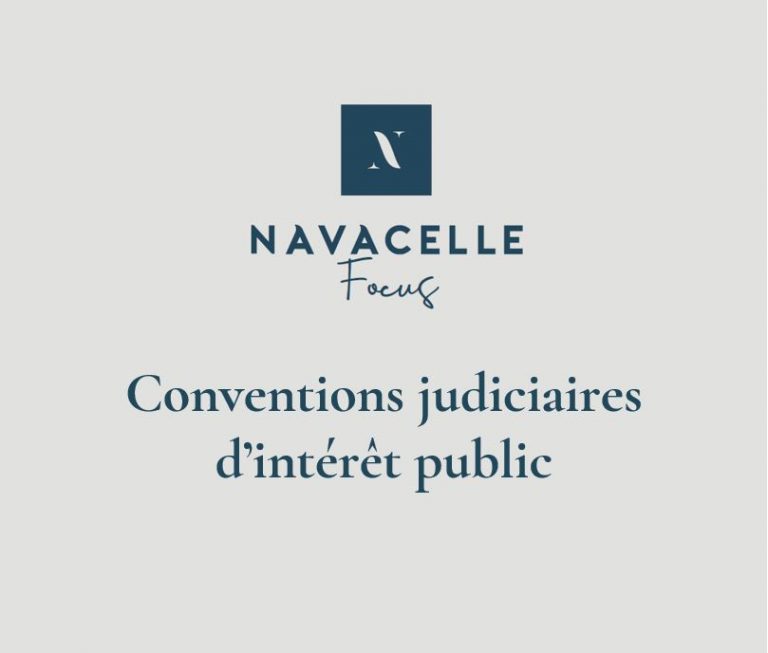Pursuant to the principle ne bis in idem, set out in Article 4 of Additional Protocol n° 7 of the European Convention on Human Rights, no one can be criminally judged, prosecuted, or charged twice for the same facts. European Court of Human Rights [1] and Court of Justice of the European Union [2] applied this principle to exclude the cumulation of tax and criminal penalties.
In recent years, this cumulation of criminal and fiscal sanctions has been a subject of significant litigation before the French courts.
Since 2016, the French Constitutional Council (Conseil constitutionnel) has approved the principle of cumulation of criminal and fiscal sanctions for the most serious cases of tax fraud. It sets out however some reservations regarding the cumulation. For the first time, the French Supreme Court (Cour de Cassation), in six rulings dated on September 11, 2019 [3] and October 23, 2019 [4], has had the occasion to clarify these reservations.
The Court has, nonetheless, reasserted that the principle ne bis in idem does not apply systematically to the cumulation of criminal and fiscal sanctions and decided that these reservations were not applicable to the cases in hand. France stays thus on the sidelines of the European stance.
I. The French Supreme Court states that the criminal judge can order a stay of proceedings only when the proceedings pending before the tax judge constitutes a serious risk of conflict between tax and criminal decisions
One of the reservations expressed by the French Constitutional Council is that the principle of necessity of offences prohibits a taxpayer who has been relieved from taxation by a final court decision on substantive grounds from being convicted of tax fraud [5]. This reservation led to the question of the obligation from the criminal judge to stay the proceedings until a final decision of the tax judge.
In one of the September 11th’s decisions [6], the company and its director were found liable by the administrative Court of tax evasion (related to declaratory deductions for VAT and abusive refunds of research tax credits), and were sentenced to pay the said eluded taxes and the penalties resulting from this breach. The defendant appealed the decision and requested the criminal judge to order a stay of the criminal proceedings based on this ground.
The Criminal Chamber of the Supreme Court ruled that the criminal judge should only order a stay of proceedings in the event of proceedings pending before the tax judge if there is a “serious risk” of conflict between the decision of the tax judge and the decision of the criminal judge. In other words, a criminal sentence can be imposed even though the accused could ultimately be discharged from the disputed taxes. In the present case, there was, however, no indication of possible contradiction between the rulings of criminal and tax judges, as the lower tax court decision (subject of appeal) did not discharge the defendant from taxation on substantive grounds in the first place.
II. The French Supreme Court limits the application of the principle of proportionality to sanctions of the same nature and specifies the nature of the solidarity penalty
According to the French Constitutional Council, when two proceedings lead to a cumulation of penalties, the total amount of penalties imposed should not exceed the higher amount of one of the penalties incurred [7].
This rule, known as the principle of proportionality, only applies to sanctions “of the same nature”. Hence, a question arises with respect to the application of the principle in case of cumulation of penalties of different nature, such as fines, tax increases, confiscation measures, ineligibility or imprisonment. Since only monetary sanctions can be compared, the judge making the last decision must carry out a comparison of the criminal and fiscal monetary penalties incurred in order to determine the ceiling’s highest amount [8].
Regarding the monetary sanctions, the Court had to clarify the legal nature of solidarity in the October 23rd 2019 decision [9]. In this case, the company’s director was jointly and severally sentenced with the company for the payment of the fraudulent taxes, increases and related penalties. The Court considered that “the fiscal solidarity stated in Article 1745 of the General Tax Code, which constitutes a guarantee for the recovery of the debt of the Public Treasury, does not constitute a penalty in the meaning of Article 8 of the Declaration of 1789”, so that the principle of proportionality is not applicable” [10]. This position confirms that solidarity is not punitive in nature as “anyone who has paid the amount of evaded taxes and related penalties in place of the debtor, has a recourse action against the principal debtor, and, where applicable, against co-debtors jointly and severally liable” [11].
III. The French Supreme Court clarifies what are the “most serious cases of fraudulent concealment of sums subject to tax” [12] where cumulation of penalties can apply
The seriousness of the fraud may result from the amount of duties defrauded or the conduct of the person prosecuted [13]. The various rulings of the French Supreme Court have shown that elements such as the use of intermediaries established abroad, the existence of concealment maneuvers or the amount of duties can be taken into account in assessing the seriousness [14]. For instance, the Court held in one of the September 11th’s decisions [15], that the seriousness of the fraud arose from the use by the defendant of accounts opened in Switzerland for fictional companies registered in tax heavens, and the amount of duties evaded which amounted to 235,580 euros.
IV. The French Supreme Court confirms the application of the reservation issued by France to the Article 4 of the Additional Protocol n° 7 of the European Convention on Human Rights to reject the application of ne bis in idem principle
France accompanied the ratification of the Article 4 of Additional Protocol n°7 of the European Convention on Human Rights with a reservation which restricts the application of ne bis in idem to criminal courts’ decisions and criminal offences [16].
The French Supreme Court affirms in these decisions that the criminal judges have to apply this reservation confirming the specificity of France in the application of ne bis in idem principle. The ECtHR has invalidated the reservations made by several other EU countries, but France reservation is indeed still valid [17]. Until otherwise decided, French courts shall thus apply the reservation made to ne bis in idem principle and give it full effect [18].
It is however interesting to note that the commentators expect the ECtHR to decide on the validity of the reservation issued by France in the foreseeable future [19] and to potentially undermine the current position of the French Supreme Court.














